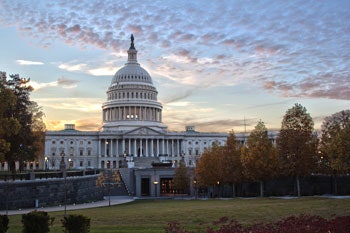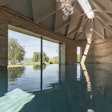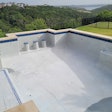
A bill has been introduced into the US Senate which would stop the federal government from pursuing action against public pools and spas that have not complied with ADA strictures.
Senate Bill 2186, offered by Senator Jim DeMint of South Carolina on March 12, would ban any representative of the US government from forcing any public pool or spa to provide access equipment as specified by the ADA.
The Americans with Disabilities Act was first passed in 1990 and then expanded in subsequent rulings to include different areas of public life. In 2010, the Act was applied to public pools and spas with a deadline of March 15, 2012, for compliance.
Under this 2010 ADA ruling, larger pools (greater than 300 linear feet of pool wall) would require at least two means of access. Smaller pools (less than 300 linear feet of pool wall) would require at least one. Either a pool lift or sloped entry (ramp) is required to be the primary means of access.
“This is another big government overreach that will force hundreds of thousands of pools to install expensive lift devices by tomorrow or face fines of over $100,000,” DeMint said in a statement Wednesday.
“This could have a real negative impact on Americans, as it will likely spark a new round of unnecessary litigation and force pools to choose between closing or raising fees on families,” he said. “Hotels and other pools with public access don’t need a one-size-fits-all Washington mandate, they should have the flexibility to work directly with people with disabilities to accommodate their specific needs.”
As the legislation is currently written, said Kevin Maher, senior vice president of governmental affairs for the American Hotel & Lodging Association, "The enforcement is going to be by litigation. A lot of drive-by lawsuits against businesses by law firms that are set up file to file spurious ADA claims."
March 15, 2012 is the deadline for installing the access equipment, although many industry personnel estimate the current compliance rate to be well below 50 percent. The proposed legislation would have to move quickly through Congress and the White House to affect the compliance process currently underway.












































